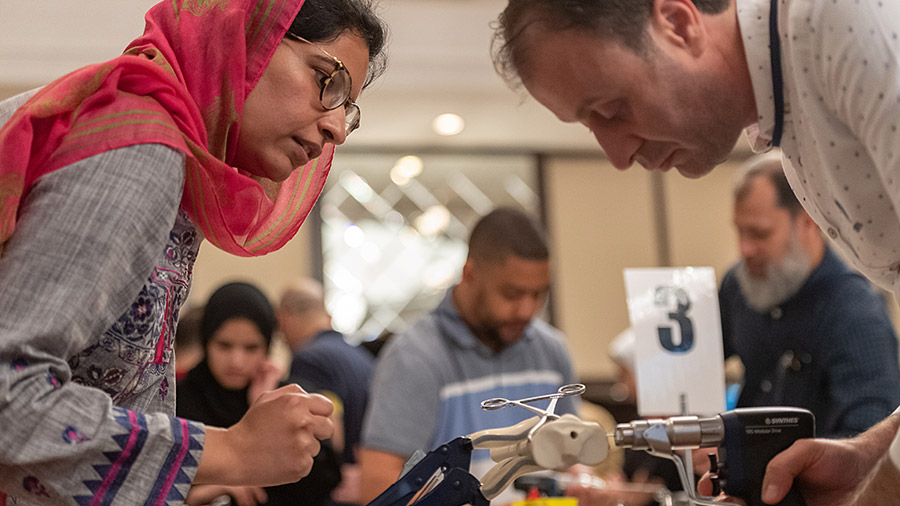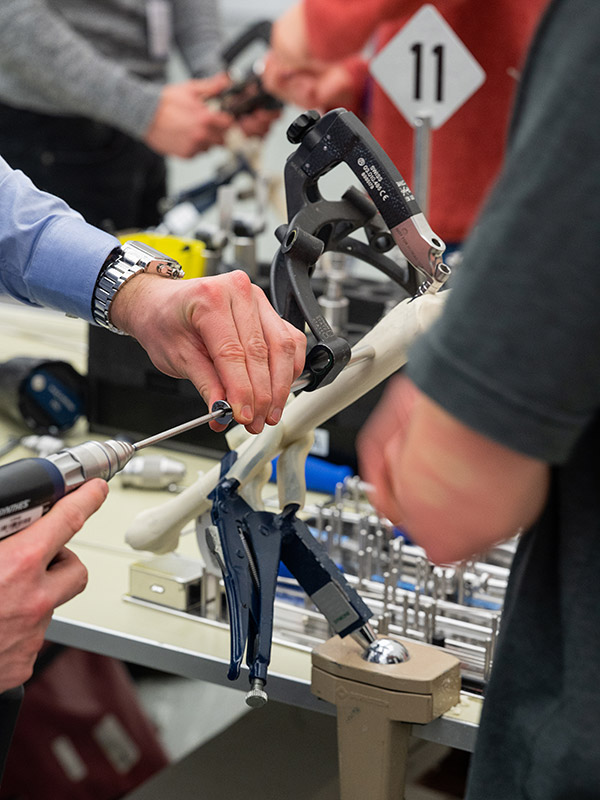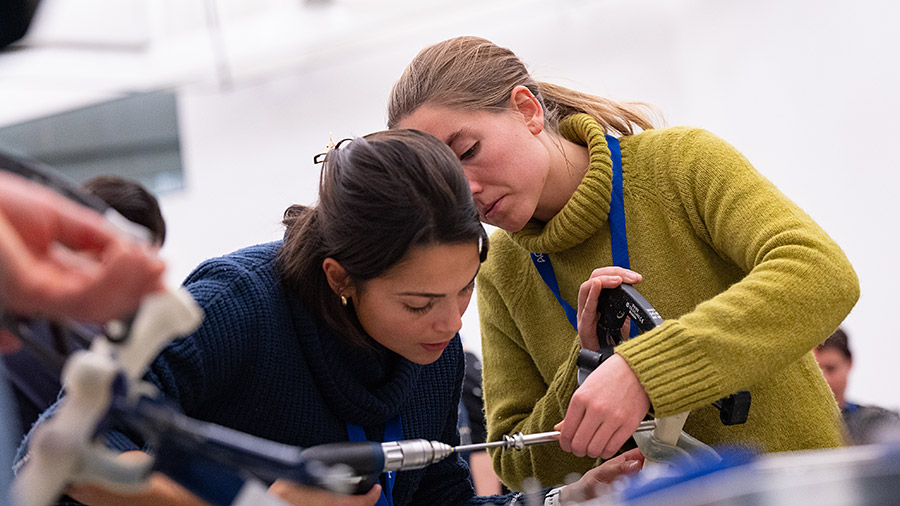AO Trauma Basic Principles of Fracture Management Course
The fundamental course for doctors in surgical training, and doctors interested in furthering their knowledge and skills in operative fracture management.
The AO Trauma course Basic Principles of Fracture Management teaches fundamental principles and current concepts in the treatment of injuries, incorporating the latest techniques in operative fracture management. The AO Trauma Basic Principles course is the initial step along the path of lifelong learning in the area of operative fracture management.
The course is available in a standard format (all face-to-face) and a blended version (with a 3-week online preparation phase).
Why you should choose this course
Top national and regional faculty
2-4 days in duration
For surgeons in training and residents
Network with colleagues from all over the world
World-class curriculum
Course content
-
Course modules
- Module 1: Injury pattern (soft-tissue and bone) and biology of bone healing
- Module 2: Stability and biomechanics of bone healing
- Module 3: Principles and management of diaphyseal fractures
- Module 4: Principles and management of articular fractures
- Module 5: Emergency management, minimally invasive surgery, and special fractures
-
AO Skills Lab – Simulations
- Torque measurement of bone screws
- Soft-tissue penetration during drilling
- Heat generation during drilling
- Mechanics of bone fractures
- Techniques of reduction
- Mechanics of intramedullary fixation
- Mechanics of plate fixation
- Fracture healing and plate fixation
- Damaged implant removal
-
Practical exercises – Dry lab
- Internal fixation with screws and plates—absolute stability
- Principles of the internal fixator using the locking compression plate (LCP)
- Application of a modular large external fixator
- Intramedullary (IM) nailing (tibial or femoral shaft)
- Cerclage compression wiring of the olecranon
- Management of a type 44C malleolar fracture
- Management of a trochanteric fracture
- Preoperative planning—plan your operation
- Operate your plan
- Management of a femoral neck fracture using 7.3 mm cannulated screws *
- Application of the large distractor to comminuted femoral fracture *
- Stabilization of the pelvic ring using a large external fixator *
- Patient positioning workshop (in lecture room) *
* Optional content: Only in selected courses. Check your chosen date and location for the full program.
-
Small group discussions
- General principles, classification, concepts of stability, their influence on bone healing, and how to apply implants to achieve appropriate stability
- Management principles for the treatment of diaphyseal fractures
- Management principles for the treatment of articular fractures
- Polytrauma, complications, and fragility fractures *
* Optional content: Only in selected courses. Check your chosen date and location for the full program.
Course details may be subject to change. Please check your chosen date and location for the detailed program.
Target audience
- Doctors in surgical training
- Doctors interested in furthering their knowledge and skills in operative fracture management
Competencies
- Understand the concepts of stability, their influence on bone healing, and how to apply implants to achieve the appropriate stability
- Plan a treatment based on assessment, imaging, classification, and decision making
- Apply reduction techniques in fracture management with attention to the soft tissue
- Apply implants according to their properties utilizing different application techniques
- Assess and treat diaphyseal fractures
- Assess and treat articular and periarticular fractures
- Demonstrate strategies for assessing and treating open fractures and soft-tissue injuries
- Manage the polytrauma patient
- Evaluate, classify, and formulate a treatment plan for pelvic injuries and acetabular fractures
- Recognize risk factors and complications and manage accordingly
- Recognize and treat bone union disorders
- Recognize and manage special fracture circumstances
What does competency-based curriculum development mean?
Resources
AO Surgery Reference
Explore the award-winning online repository for surgical knowledge, describing the complete management process from diagnosis to aftercare for fractures in a given anatomical region.
Residents education taskforce
The Residents education taskforce is a group of experts who build and continuously improve our educational program. It consists of three

Jason A Lowe (USA)
Term: 2025–2027

Sue Deakin (UK)
Term: 2023–2026

Luiz Henrique Penteado Da Silva (Brazil)
Term: 2026–2028
See a full list of all regional program contributors and past international program editors.
Not the right course?
Find our list of all curricula courses here.





